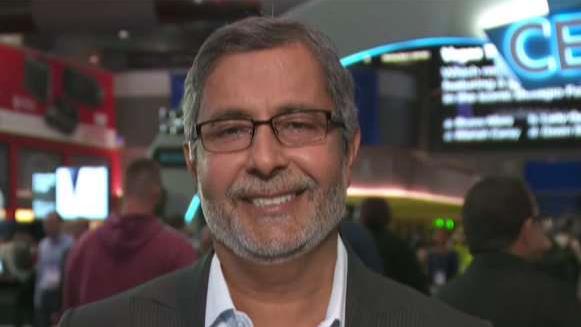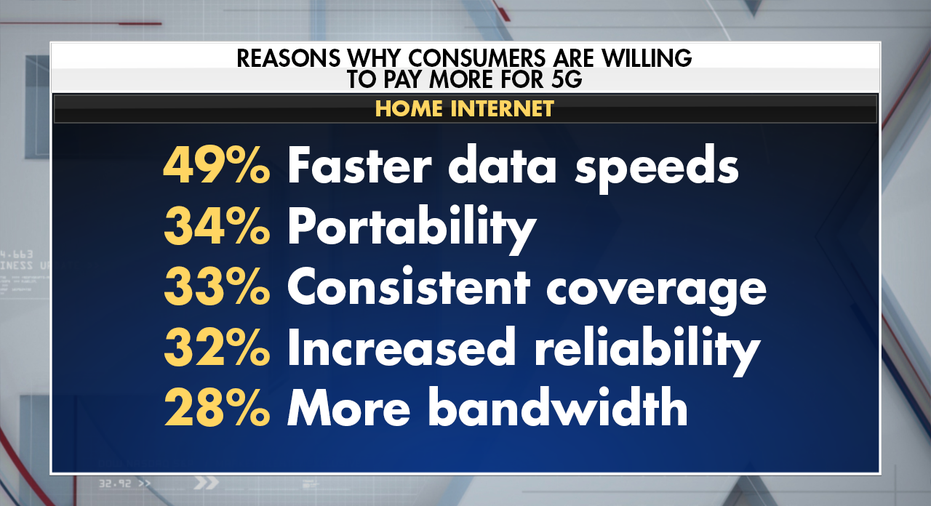US consumers would pay a 5G premium for these reasons
If 5G proves to be as beneficial as it has been marketed to be, one-third of Americans would upgrade their home’s internet access
Major mobile carriers like AT&T, Sprint, T-Mobile and Verizon may have rolled out 5G networks last month, however, U.S. consumers are largely satisfied with the internet service they already have, according to a PricewaterhouseCoopers survey.
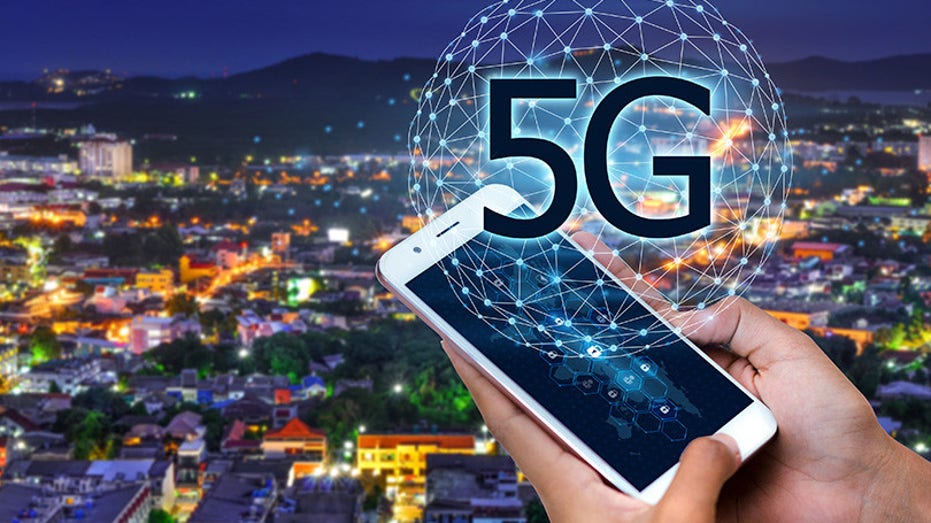
Despite this, American internet providers are pushing this fifth-generation of connectivity to prepare the nation for future tech advancements such as self-driving cars and telemedicine. It is also said to offer a boost to the economy with hundreds of thousands of jobs, according to top White House economic adviser Larry Kudlow.
KUDLOW: 5G WILL EMPLOY HUNDREDS OF THOUSANDS
Samsung announced last week the company shipped more than 6.7 million 5G-ready Galaxy smartphones in 2019. Verizon, on the other hand, announced Wednesday that it will release 20 5G devices in 2020 – some of which will cost under $600 and may persuade shoppers to upgrade.
Although U.S. consumers are generally satisfied with their current internet servicers, PwC did find that there is growing frustration with reliability, speed and cost. In a survey of 1,000 home and mobile internet users, PwC inquired about which circumstances would convince U.S. consumers to advance to 5G and whether they would pay a premium for improved coverage.
Reliability is a top priority.
Respondents to PwC’s survey cited inconsistent service as a grievance with their current internet providers.
Thirty-seven percent of people surveyed said their home internet “disconnects for no reason.” Conversely, 43 percent said internet on their mobile device occasionally “cuts in and out” or “is not always strong.”
CES PREVIEW: LOOK FOR 5G, AI, SUBSCRIPTION SERVICES, 8K TVS
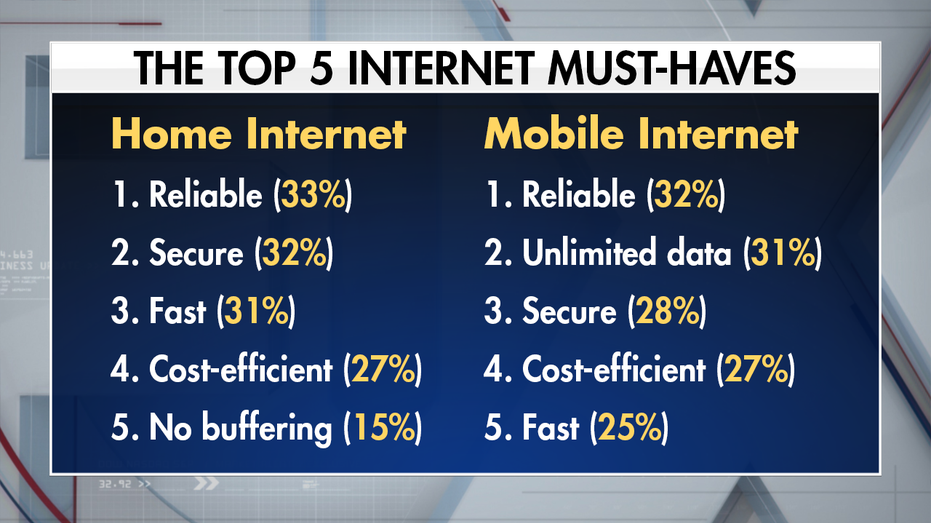
About one-third of consumers said they would prefer to have reliable internet access over speed, security, data and cost.
Faster speeds warrant a premium.
Getting reliable speed and coverage will cost an additional fee, but many respondents told PwC they are willing to pay for it despite them feeling that they already pay too much. Particularly, 51 percent believe they pay too much for home internet while 36 percent believe they pay too much for mobile Internet – though PwC notes the opposite being true with 1GB of usage costing $0.34 at home versus $20.02 on mobile, on average.
Despite consumers thinking they currently pay too much, they named faster data speeds as the main reason why they would pay a premium for 5G. Though, this desire for speed was more prevalent among mobile users.
WILBUR ROSS: AUTO INDUSTRY HAS COME A LONG WAY SINCE HORSE AND BUGGY DAYS
At-home internet users also noted that they want more bandwidth to accommodate more devices on their home network.
For streamers on-the-go, over a quarter said they would pay for 5G if it provided them better video quality. Additionally, one-quarter said they would pay more if it decreased video buffering.
How much are people willing to pay for 5G?
If 5G proves to be as beneficial as it has been marketed to be, one-third of respondents told PwC that they would upgrade their home’s internet access. Slightly less than one-third said they would do the same for their mobile device.
On average, respondents said they are willing to pay an extra $5.06 per month for 5G internet in the home versus an extra $4.40 per month for 5G internet on their mobile device. However, most 5G plans cost between $10 and $20, according to a November press release from Research and Markets.
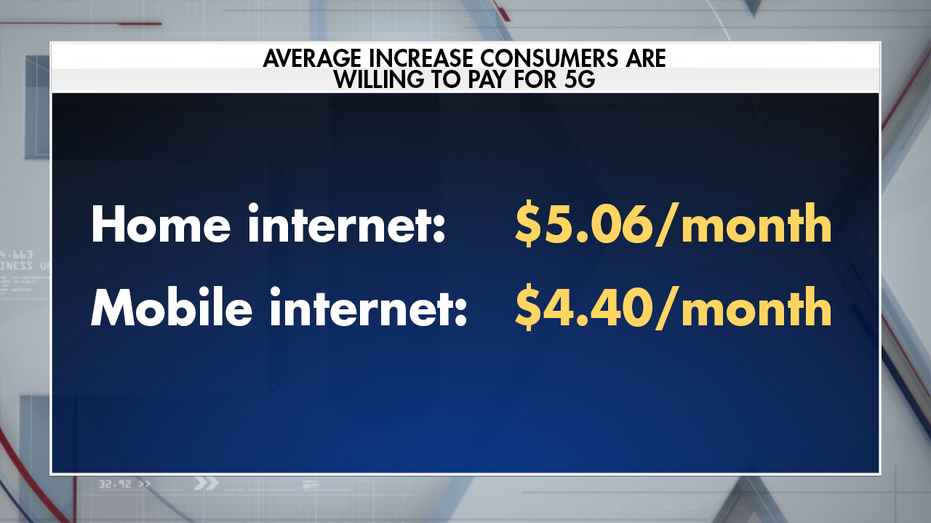
GET FOX BUSINESS ON THE GO BY CLICKING HERE
From its survey, PwC suggests that consumers are willing to pay more for 5G in the home because they are less satisfied overall with their home internet connectivity.
Eighty-seven percent of respondents told PwC that they were “at least somewhat satisfied” with their home internet service, while 92 percent of respondents told PwC that they were “at least somewhat satisfied” with their mobile internet service.
Of those who said they were “completely satisfied,” 38 percent were home internet users while 50 percent were mobile internet users.
Despite its benefits, 5G is not a necessity.
A little more than half – 53 percent – of mobile internet users said they would be willing to make changes to adopt 5G, according to PwC’s survey.
Nearly a third said they would switch their internet provider, over a fifth would switch the mobile device brand they use and nearly a fifth would switch the platform or operating system they use.
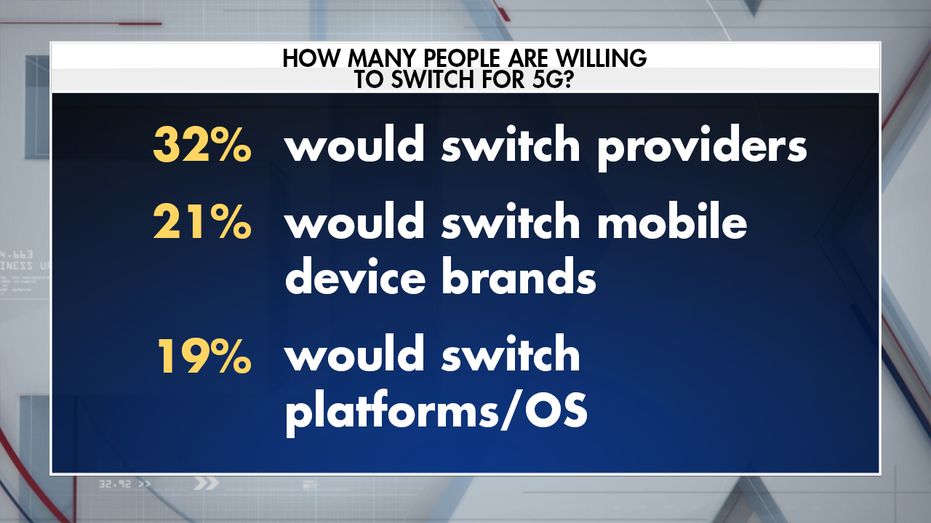
Although respondents said they would be willing to switch for 5G, not everyone will do it immediately. In fact, only slightly more than a quarter would upgrade to a new device right away regardless of if they were eligible for an upgrade. The remaining near three-quarters would hold off until they were eligible for an upgrade.
CLICK HERE TO READ MORE ON FOX BUSINESS
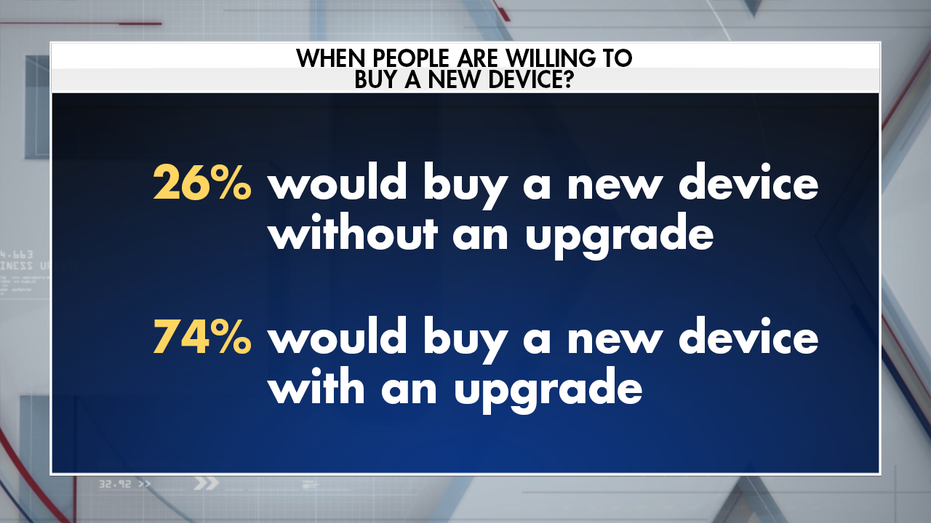
Interestingly enough, young males under the age of 40 and African Americans were equally most willing to buy a new device right away (36 percent each), while gaming consumers came in as second most willing at 34 percent.




















